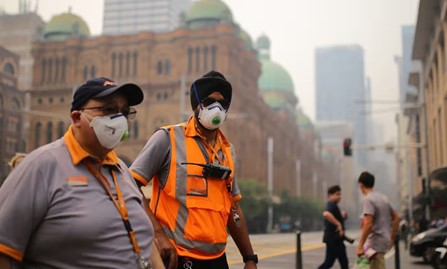
Widespread Disinformation Campaign' Hinders Global Shift to Renewable Energy
The United Nations has reported that fossil fuel companies are driving a significant "mis- and disinformation campaign" aimed at slowing the global transition to green energy and delaying the shift away from carbon-intensive economies.
Selwin Hart, the UN's assistant secretary-general, stated that the fossil fuel industry is fueling talk of a worldwide "backlash" against climate action. This effort is designed to convince global leaders to postpone policies aimed at reducing emissions. Hart emphasized that the perception of widespread opposition to climate policies is largely a result of this disinformation campaign, rather than a true reflection of public opinion.
"There's a dominant narrative being pushed by the fossil fuel industry and their supporters that climate action is too challenging and too costly," Hart said. "It's crucial for leaders, and all of us, to counter this narrative and demonstrate to people the value of climate action, as well as the consequences of failing to act."
He contrasted the idea of a backlash with the findings from the largest global survey ever conducted on climate issues. This poll revealed that clear majorities across the world support measures to reduce greenhouse gas emissions. According to the survey, 72% of respondents favored a "rapid transition" away from fossil fuels, including majorities in countries that are the largest producers of coal, oil, and gas. While some green parties and climate initiatives have faced setbacks in certain regions, Hart noted that in other areas, these movements have gained momentum, with policies once deemed radical now entering mainstream discourse.
Hart, who serves as a special adviser on climate to UN Secretary-General António Guterres, urged governments to take heed of these findings. "This should be a wake-up call for political leaders—those who are ambitious are not just on the right side of history, but also aligned with the will of the people."
He expressed concern that climate issues seem to be slipping down the priority list for many leaders. "We need maximum ambition from our leaders now, and we need maximum cooperation. Unfortunately, that's not what we're seeing."
Hart warned that the repercussions of inaction are being felt in both wealthy and impoverished nations. In the United States, for example, thousands are struggling to insure their homes as extreme weather events worsen. "This is a direct result of the climate crisis and our continued reliance on fossil fuels," he said. "Ordinary citizens are bearing the brunt of this crisis, while the fossil fuel industry continues to earn excessive profits and still benefits from substantial government subsidies."
Despite these challenges, Hart pointed out that the world is more equipped than ever to combat climate breakdown. "Renewable energy is more affordable than it has ever been, and the pace of the energy transition is increasing," he said.
He also highlighted the importance of ensuring that climate policies do not disproportionately impact low-income populations, noting that poorly designed measures can harm the most vulnerable. "Each country must carefully plan its transition to minimize the impact on vulnerable populations because much of the so-called pushback arises from the perception that the costs are being unfairly shouldered by the poor."
In response, the UN is advocating for new national plans on emissions reductions under the 2015 Paris Agreement. These plans, known as nationally determined contributions (NDCs), should not only set targets but also clearly outline the policies needed to achieve them, along with their expected impacts.
Hart stressed that these new NDCs should be "as inclusive as possible," allowing different segments of society—such as youth, women, children, and workers—to provide input on how the transition should be managed and financed.
"Despite the extreme weather events we're witnessing, the level of ambition and action needed to address the crisis is still falling short," he concluded.